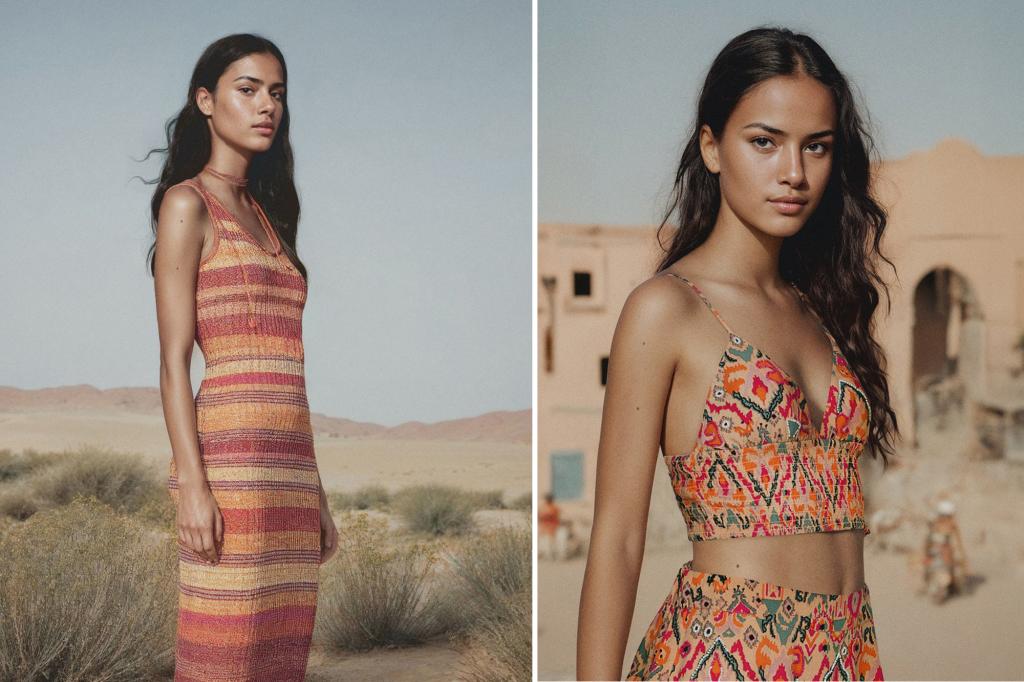Fashion brands are increasingly turning to artificial intelligence to create their advertising campaigns, with the goal of faster content creation. Mango, a fast fashion retailer, was one of the first to feature AI-generated models in their ads, which coincided with record-high revenues. The company plans to expand the use of AI models in all of their collections in the future. Other major brands such as Nike, Louis Vuitton, and Levi Strauss & Co. have also started embracing AI in their advertising strategies, as it offers cost-effective solutions compared to using real-life models.
AI models are significantly cheaper than human models, making them an appealing option for brands looking to cut costs while still maintaining a high-quality aesthetic. Industry experts believe that AI can also aid in the design process, leading to innovation in the fashion industry. Mango has been investing in AI and machine learning technology for years, with the goal of improving efficiency across different aspects of the company. The company’s in-house engineering team collaborates with machines to create cohesive mood boards and train AI models using a set of images for each outfit.
Despite criticisms of replacing real-life models with AI-generated models, Mango has plans to double its current workforce and open more than 30 new storefronts by the end of the following year. The company views AI as a tool to amplify employees’ capabilities and creativity, allowing them to focus on value-added work. Marco De Vincenzo, a creative director for the luxury brand Etro, believes in the potential of AI to enhance creativity, as seen in the surreal and visually striking images created for the brand’s spring 2024 campaign. He emphasizes the importance of the human touch in the creative process but views AI as a new method for expressing creativity.
The use of AI in fashion advertising represents a new normal in the industry, valued at $2.5 trillion. AI models offer a cost-effective alternative to real-life models, with the potential to drive innovation in design processes. Mango’s investment in next-gen technology, such as machine learning platforms, aims to boost efficiency and streamline operations across the company. While AI has faced backlash in other areas of the fashion industry, brands like Mango and Etro see it as a valuable tool for enhancing creativity and creating visually engaging campaigns. With AI models becoming more prevalent in advertising, the future of fashion marketing may involve a blend of human and digital intelligence to drive success.


